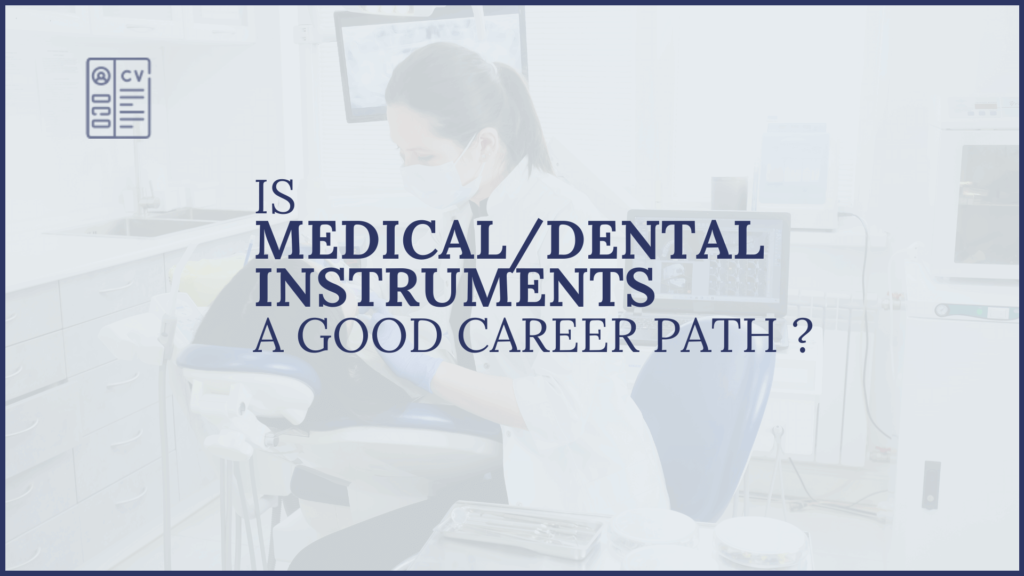Are you considering a career in the medical/dental instruments field? As the demand for healthcare professionals continues to grow, the need for skilled individuals to work with medical instruments is also on the rise. Medical instruments plays a crucial role in assisting physicians and dentists in treating patients.
From performing complex surgical procedures to providing routine dental care, working with medical instruments can be an exciting and rewarding career path. However, it’s important to understand both the challenges and benefits that come with pursuing a career in this field.
Key Takeaways:
Diverse Opportunities
Careers in medical/dental instruments offer a wide range of opportunities, from surgical instruments to dental tools, providing various paths for specialization and growth.
Steady Demand
The healthcare industry’s consistent need for medical and dental instruments ensures a stable demand for professionals in this field, making it a reliable career choice.
Prerequisite Education
Pursuing a career in medical/dental instruments typically requires specialized education and training, such as a degree in biomedical engineering or certification in surgical technology.
Technological Advancements
Professionals in this field must stay updated with the latest advancements in medical instrument technology, which can be both challenging and rewarding as it keeps the profession dynamic.
Patient Care Impact
Working with medical and dental instruments directly impacts patient care, making it a fulfilling career for individuals seeking to make a positive difference in healthcare.
Medical/Dental Instruments: An Overview
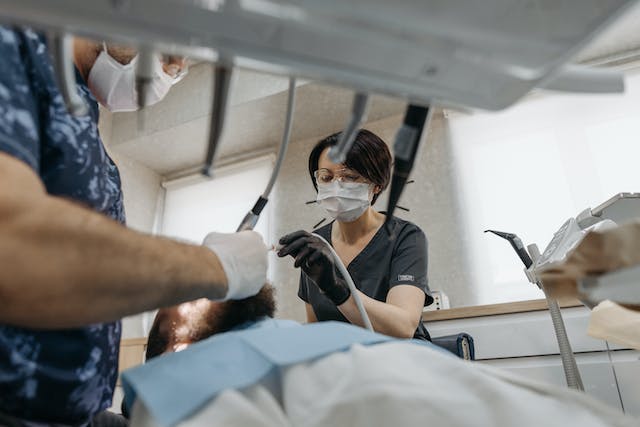
Some professions require precision and accuracy in order to deliver the best possible care to patients. One such field is the medical and dental industry, where the use of various instruments is crucial for diagnosing and treating patients. In this chapter, we will take a closer look at the different types of medical and dental instruments, their definitions, and the importance of choosing the right instruments for a successful career in this field.
Definition and Types of Medical Instruments
Medical instruments are tools used by healthcare professionals to diagnose, monitor, and treat patients. These instruments can range from surgical instruments, such as scalpels and forceps, to diagnostic instruments, such as stethoscopes and blood pressure cuffs. Other types of medical instruments include dental instruments, ophthalmic instruments, and endoscopic instruments, each serving a specific purpose in the medical field.
After considering the rapid advancements in medical technology, the importance of understanding and using the latest digital and robotic medical instruments cannot be overstated. It is crucial for healthcare professionals to stay updated with these advancements in order to provide the best possible care to their patients.
Dental Instruments: A Closer Look
When it comes to dental instruments, precision and accuracy are of utmost importance. Dental instruments are designed to help you perform various tasks, such as scaling, extraction, and filling procedures. Some of the most important dental instruments include dental mirrors, probes, and forceps, each serving a specific function in dental procedures.
It is important to note that improper use of dental instruments can lead to damage and injuries to both you and your patients. Therefore, it is crucial to receive proper training and stay updated with the latest advancements in dental instruments in order to provide the best possible care to your patients.
Instrumental Choices: The Medical Perspective
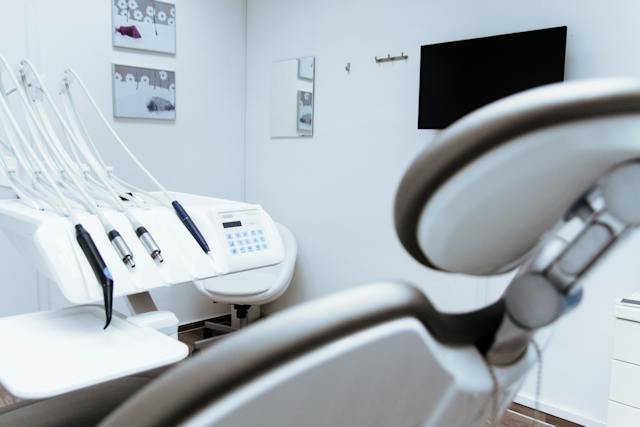
Your interest in the medical field has led you to consider a career in medical/dental instruments. If you are contemplating this path, you are likely wondering if it is a good career choice. The answer to this question involves various factors such as job demand, growth potential, and personal satisfaction. To help you make an informed decision, you can explore the topic in more detail by reading these articles on perfect guide for choosing the right career and to clear doubts about the best career choice.
A Comprehensive Guide to Medical Instrument Selection
In the medical field, selecting the right instruments is crucial for patient care, accuracy, and efficiency. To make the best choices, you should consider the quality, durability, and precision of the instruments. Quality is essential to ensure the safety and well-being of patients, while durability helps maintain a consistent level of performance over time. Precision is necessary for accurate diagnoses and treatment, making it an integral consideration in selecting medical instruments.
Navigating the Journey: Considerations in Choosing Medical Instruments
When choosing medical instruments, it’s important to take into account factors such as the intended use, ergonomics, and sterilization requirements. The intended use of the instruments will dictate the specific features and functionalities needed for each tool. Additionally, ergonomics play a vital role in ensuring the comfort and safety of healthcare professionals during prolonged use. Furthermore, considering the sterilization requirements is essential to maintain a sterile environment and prevent infections in clinical settings.
Instrumental Choices: The Dental Perspective
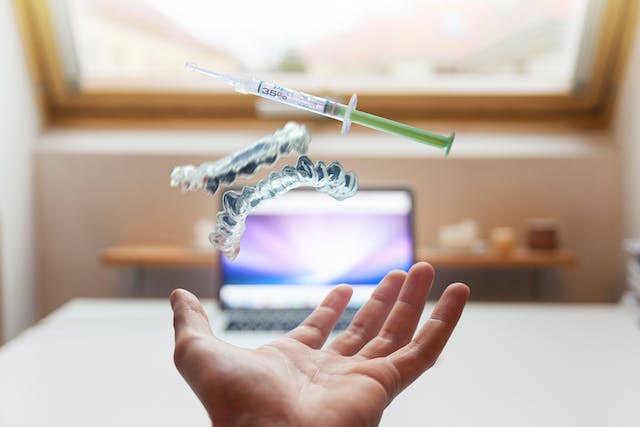
Your instrumental choices as a dental professional play a crucial role in ensuring the success of your practice. The selection of the right dental instruments directly impacts the quality of patient care, the efficiency of treatments, and the overall experience for both patients and dental professionals.
In-depth Information on Dental Instrument Selection
When it comes to dental instrument selection, it’s important to consider the specific needs of your practice. Different dental specialties require different sets of instruments to perform procedures effectively. For example, a periodontist may require specialized instruments for scaling and root planing, while an orthodontist may need a distinct set of instruments for procedures such as bracket placement and adjustments.
Factors to Consider in Choosing Dental Instruments
There are several important factors to consider when choosing dental instruments for your practice. Durability is key, as dental instruments are used repeatedly and must withstand the rigors of daily use. Ergonomics is also important to reduce the risk of musculoskeletal injuries for dental professionals, as well as to ensure patient comfort. Precision is another critical factor, as the accuracy of dental procedures relies on the quality of the instruments used.
Durability
- Ensure that the instruments are made of high-quality materials and can withstand repeated use without deterioration.
Ergonomics
- Look for instruments that are designed to minimize hand fatigue and stress, reducing the risk of musculoskeletal injuries.
Precision
- Choose instruments that are specifically designed for the procedures you perform, ensuring accurate and effective treatment.
Knowing the importance of these factors in choosing dental instruments will help you make informed decisions that contribute to the success of your practice and the well-being of your patients.
Medical Instruments as a Career Path
Now let’s talk about the potential of pursuing a career in medical instruments. As a vital component of the healthcare industry, medical instruments play a crucial role in diagnosis, treatment, and patient care. If you have an interest in technology, healthcare, and helping others, a career in medical instruments could be a rewarding path for you.
The Rewards and Challenges of a Career in Medical Instruments
Choosing a career in medical instruments can be personally and professionally rewarding. You have the opportunity to work with cutting-edge technology and contribute to improving patient outcomes. You play a direct role in the delivery of healthcare services and help save lives. However, it’s important to note that the job can come with challenges, such as high levels of responsibility, long hours, and the need to stay updated with rapidly evolving technology and medical techniques.
Opportunities and Prospects in the World of Medical Instruments
As advancements in medical technology continue to evolve, the demand for skilled professionals in the field of medical instruments is on the rise. This translates to a range of opportunities for career growth and development. Whether you choose to work in a hospital setting, research facility, or medical equipment manufacturing company, there are various avenues for you to explore.
Furthermore, the potential for innovation and entrepreneurship within the medical instruments industry offers the prospect of creating and developing your own products and services.
Dental Instruments as a Career Path
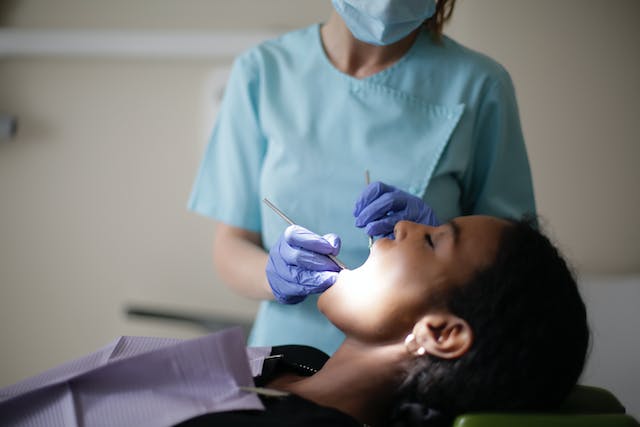
Now, let’s dive into the career path of dental instruments. Working in the field of dental instruments is a promising career choice that offers a unique blend of technical skills, healthcare knowledge, and patient interaction. As a dental instrument technician, you play a vital role in ensuring that dental procedures run smoothly and efficiently.
The Intricacies of Choosing Dental Instruments as a Career
When considering a career in dental instruments, it’s essential to understand the intricacies involved in this field. As a dental instrument technician, you will be responsible for maintaining, sterilizing, and preparing dental tools and equipment for use in various dental procedures.
This requires a high level of attention to detail and the ability to follow strict hygiene and safety protocols. Your work directly impacts the quality of patient care, making precision and accuracy indispensable qualities in this career path.
Future Scenarios and Potential in the Dental Instruments Career Path
Looking ahead, the future in the field of dental instruments holds promising potential for career growth and advancement. The demand for dental services is expected to increase, leading to a greater need for skilled dental instrument technicians.
With advancements in dental technology, there will be opportunities to specialize in the use and maintenance of cutting-edge dental instruments and equipment. This creates a dynamic environment where you can continuously enhance your skills and expertise, ensuring a rewarding and fulfilling career in dental instruments.
Medical/Dental Instruments Case Studies

Despite the challenges, pursuing a career in medical/dental instruments can yield great rewards in terms of job satisfaction, financial stability, and professional growth. Here are some case studies that highlight the potential of this career path:
Case Study 1
- A dental instrument technician with 5 years of experience earns an average salary of $50,000 annually and has the opportunity to work in various settings, including dental offices, laboratories, and manufacturing companies. You can read more about this career path here.
Case Study 2
- A medical instrument specialist with specialized training in surgical instruments earns a median salary of $60,000 per year and has the opportunity to advance to supervisory or management positions. This career path also offers opportunities for travel and continuing education in the field.
Case Study 3
- A dental hygienist specializing in instrument maintenance and sterilization earns an average salary of $70,000 annually and has the opportunity to work in private practice, public health, or research settings. The demand for dental hygienists is projected to grow by 20% in the next decade, providing job security and opportunities for career advancement.
Success Stories in Medical Instruments Career Paths
Many individuals have found success in medical instruments careers, advancing from entry-level positions to leadership roles in healthcare organizations. By pursuing advanced certifications and gaining hands-on experience, professionals in this field have been able to make significant contributions to patient care and safety.
Inspiring Career Journeys in Dental Instruments
When it comes to dental instruments, there are numerous inspiring career journeys that showcase the potential for growth and fulfillment in this field. From dental technicians and hygienists to instrument maintenance specialists, the dental industry offers diverse and rewarding career paths with the opportunity to positively impact oral health and overall well-being.
Conclusion: Is Medical/Dental Instruments a Good Career Path?
Upon reflecting on the various medical and dental instruments available in the field, you can see the diverse range of career opportunities that pursuing a career in medical instruments can offer. Whether you are interested in surgical instruments, dental tools, or diagnostic equipment, there is a world of options available to you as a prospective medical instruments professional.
With the constant advancements in technology and medical science, this career path offers a dynamic and ever-evolving landscape for you to explore and contribute to. Your decision to pursue a career in medical instruments can be a fruitful one, as it offers job security, a sense of fulfillment in contributing to the healthcare industry, and the opportunity to work in a field that is constantly advancing.
As you consider your career options, keep in mind the range of specialization within medical instruments, the potential for growth and advancement, and the satisfaction of being an integral part of the healthcare industry. Your interest and dedication to this field can lead to a rewarding and impactful career in medical instruments.
People also Asks – Is Medical/Dental Instruments a Good Career Path?
What are some common medical and dental instruments?
Common medical and dental instruments include scalpels, forceps, retractors, dental mirrors, and periodontal probes.
What skills are necessary for a career in medical instrument technology?
A career in medical instrument technology requires attention to detail, manual dexterity, and the ability to work with precision instruments.
Is a career in medical instrument technology a good choice?
Yes, a career in medical instrument technology can be a rewarding and fulfilling choice for those interested in the healthcare field and technological advancements.
What education is required for a career in medical instrument technology?
A degree or certification in medical instrument technology or a related field is typically required for a career in this field. Many employers also look for hands-on training or internships.
What are the job prospects for medical instrument technologists?
Job prospects for medical instrument technologists are expected to be favorable as the demand for healthcare services increases, leading to a need for more medical and dental instruments and professionals to maintain and operate them.

Author Bio
Brian Bertrand
Brian Bertrand is an experienced resume writer with over five years of expertise in catapulting clients to their dream jobs. Through collaborations with renowned freelance platforms and esteemed online resume service brands, he has carved a niche for himself by delivering personalized, top-notch resumes that encapsulate the very essence of each client’s accomplishments, skills, and character. Diligent in his approach, Brian’s innovative flair and unwavering commitment to his craft make him a trusted partner in the pursuit of professional success. With an insistent curiosity for diverse industries and career trajectories, Brian strives to ensure that each resume he creates stands out from the competition. Whether you’re an aspiring graduate, a career switcher, or a seasoned pro, Brian possesses the expertise to craft a resume that truly reflects your unparalleled value and potential.

